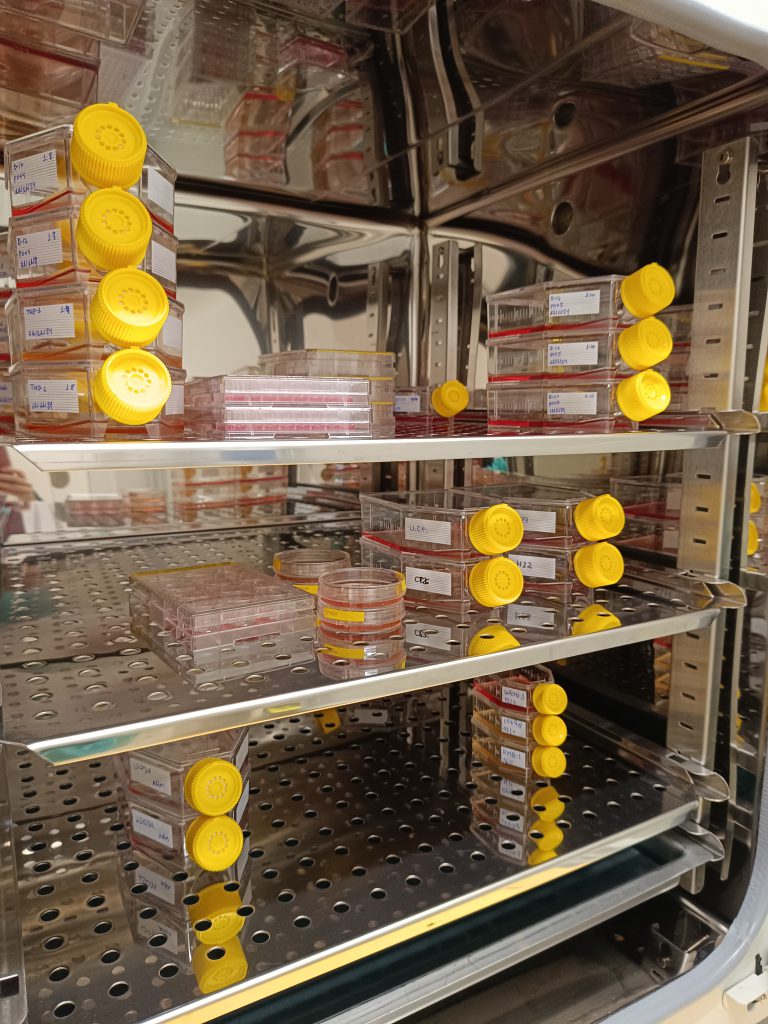In vitro nanotoxicology
The aim of this service is to evaluate the in vitro toxicity of compounds in different types of normal human cells in which we determine the effect using different types of assays including MTT, LDH release and caspase activation. The cellular models that we offer include cells from kidney, liver, bone marrow stroma or peripheral blood. Additionally, we are offering immunology assays including detection of NO production and chemotaxis and phagocytosis assays.
Customer benefits
The customer will benefit from more than 20 years of experience of the researchers involved in the service that have performed the in vitro evaluation of the toxicity of different nanoparticles and other types of compounds. We offer also the possibility of setting up new in vitro assays or to offer other cellular models that could be of interest for the costumer. Moreover, the conditions of the assays are flexible and will be adapted to the needs of each specific compound.
Target customer
The offered service can be of interest to research groups of academia or companies willing to test the toxicity of any compound in vitro.

References
- Falgàs A, Pallarès V, Unzueta U, Núñez Y, Sierra J, Gallardo A, Alba-Castellón L, Mangues MA, Álamo P, Villaverde A, Vázquez E, Mangues R, Casanova I. Specific Cytotoxic Effect of an Auristatin Nanoconjugate Towards CXCR4+ Diffuse Large B-Cell Lymphoma Cells. Int J Nanomedicine. 2021 Mar 5;16:1869-1888. doi: 10.2147/IJN.S289733.
- Núñez Y, Garcia-León A, Falgàs A, Serna N, Sánchez-García L, Garrido A, Sierra J, Gallardo A, Unzueta U, Vázquez E, Villaverde A, Mangues R, Casanova I. T22-PE24-H6 Nanotoxin Selectively Kills CXCR4-High Expressing AML Patient Cells In Vitro and Potently Blocks Dissemination In Vivo. Pharmaceutics. 2023 Feb 22;15(3):727. doi: 10.3390/pharmaceutics15030727.








